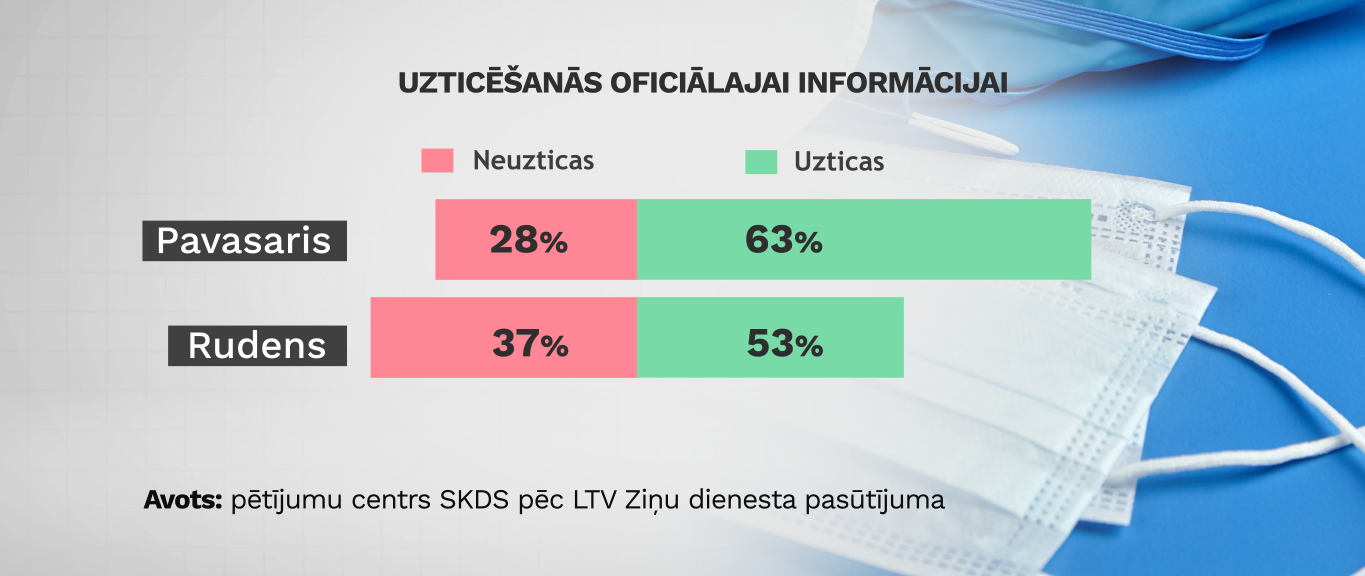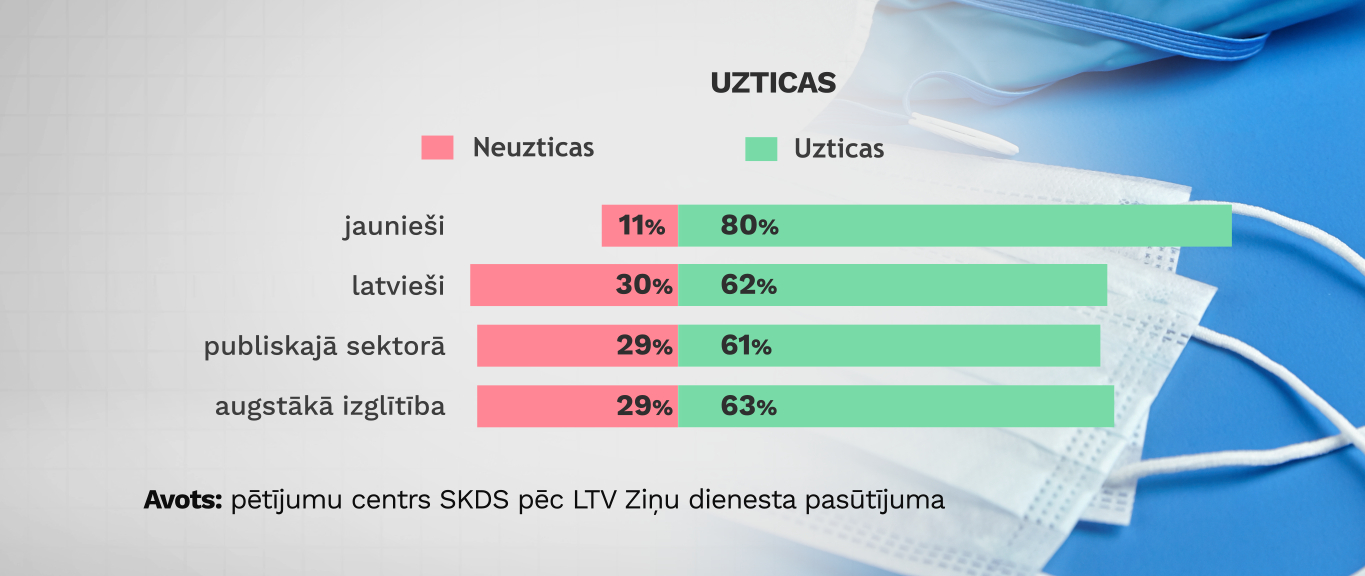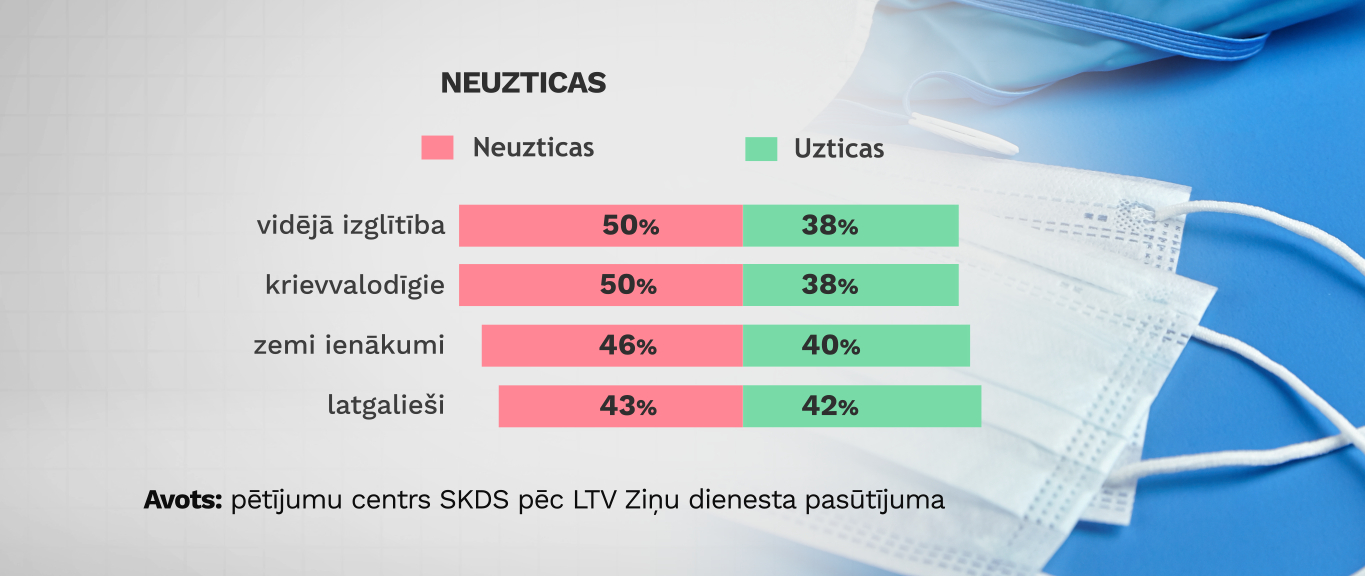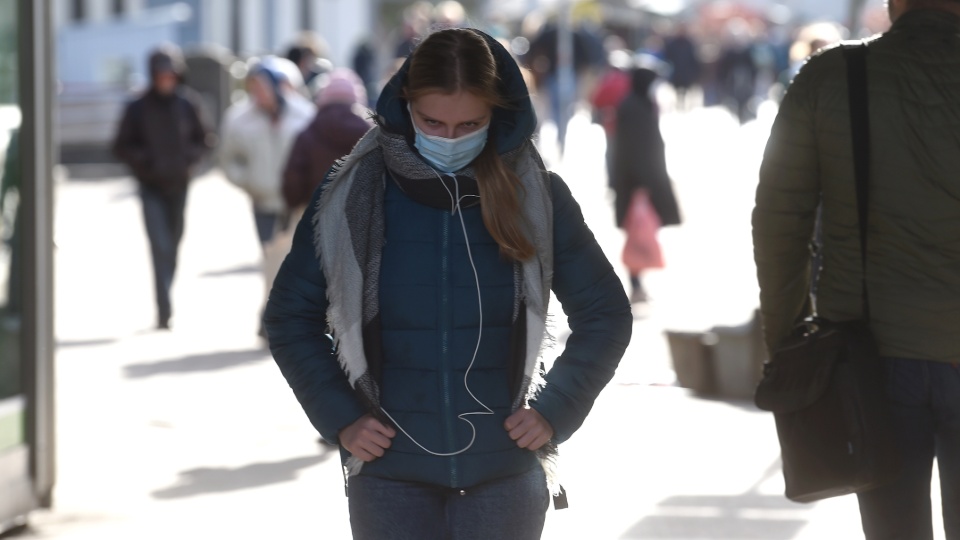The Internet is flooding with stories of someone who has not done a test but received positive result. Or about someone who died of other causes, but medics want to show COVID-19 as a cause of death for a cash bonus. A unifying aspect to all these stories – there are absolutely no indications to make sure that the information is true.
The fact that people choose to believe anonymous statements on the Internet is also confirmed by the SKDS study. In spring, 63% of 1,000 respondents trusted official information, which was a very good indicator.
The number of those who trust government information has fallen to 53%. But the number of people who do not trust government information has increased from 28% to 37%.

If we look at more detailed profiles, the government's communication is most trusted by young people aged 18 to 24, people of Latvian nationality, people in the public sector, and people with higher education.

Distrust in official information is more frequently shown by people with basic and secondary education, Russian-speaking people, low-income people, and Latgale residents.

The experts surveyed pointed out that before blaming internet trolls who have stolen society's trust, government should also look at their own mistakes. Perhaps ministers have lowered their own credibility.
“First of all, we have seen that, unlike in the spring, the cohesion of government and internal solidarity are not exactly the same. We see disputes between the Minister for Health and the Prime Minister and others. The overall coherence that was there in the spring has vanished.
But the context has changed, too. There are very different infection rates at the moment, and consequently the perception of government behavior is completely different,” explained Mārtiņš Kaprāns, lead researcher of the LU Institute of Philosophy and Sociology.
Head of the SKDS, sociologist Arnis Kaktiņš, said: “There have been a series of episodes that have in no way contributed to an increase in confidence levels. One example was the story of the Rīga marathon, where, if I understood correctly, the experts did not say [that it was not allowed to happen], even the Minister for Health did not object and believed that the marathon could take place. But the government thought it was smarter than epidemiologists and said, no, this marathon will not happen.”
Experts say that if the government wants the public to hear their calls to “be united” and “follow the recommendations of epidemiologists”, ministers themselves should demonstrate unity in their work and take expert advice into account in their decisions. Otherwise, they will set the stage for conspiracy theorists.





























